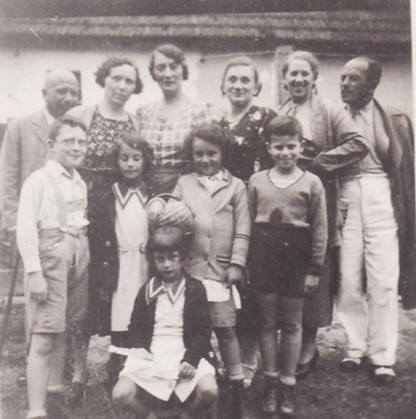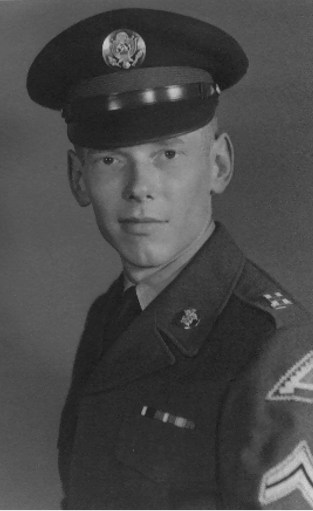*All names and personal details have been changed to preserve with the privacy of those involved
What is the relation of “Uncle” Yosef who immigrated to Israel before the war?
The research question as it turned out in the first conversation with Eyal * was: What is the relation (if any) of “Uncle” Yosef to Eyal’s family?
Eyal approached me with a seemingly simple but obligatory research question that entails complex research in the area of the former Poland, today’s Belarus
How did we start the genealogy research?
The research question was defined as an attempt to find the family relation, if any, between “Uncle” Yosef and Eyal’s grandmother. Eyal’s grandmother always mentioned her “Uncle” Yosef, a relative who lived in Israel. Eyal’s grandmother and also the “uncle” Yosef, were born in the twentieth century in the Polish region. This is an area that was under the control of several regimes at different times. Eyal’s grandmother immigrated to Israel before the establishment of the state, got married and had children. “Uncle” Yosef also immigrated to Israel before the establishment of the state, but never got married. “Uncle” Yosef died in Israel in the 1950s or 1960s when he was childless. “Uncle” Yosef left behind a number of pages of testimony in the Yad Vashem databases, in which he listed several dozen members of his family who apparently perished in the Holocaust or lost contact with them after the Holocaust.
Who among us did not have an “Uncle”?
During our childhood, especially for the “second generation” after the war, our parents introduced us to a considerable number of “uncles” and “aunts”, each in his own language. Quite a few “uncles” and “aunts” of the family lived around us. We did not always know what the real family connection was, and sometimes there weren’t such. The nickname “Uncle” or “Auntie” was a kind of affectionate nickname and maybe a little more than that. In the years after the war, “She’erit HaPleita” came to Israel. These were people whose family perished or disappeared in the Holocaust and left behind places and memories of other lives – from the period before the war. Quite a few remain a lone remnant of their family or even their place of birth. Where there were communities, there was often nothing left.
It seems that the nickname “Uncle” was given as an affectionate nickname to people and even as their made-up connection to an existing family knowing that the “uncle” was actually left without a real family. “Uncle Is not a real “uncle” of family ties, but, more like an “adoption” to a family even if not an official adoption. Such “adoption” relationships are familiar to me from my family and other families as well as from various genealogy studies I have conducted.
How did the genealogy research proceed?
In the first stage, I tried to go through the Yad-Vashem pages of testimony and extract data from them that indicate the family connection between the grandmother and “Uncle” Yosef. A preliminary search found more than ten places of the same name, but in different districts throughout Poland.
Continuing the search by last name yielded zero results !!
Make no mistake, Zero results is a result! And no bad result at all. The conclusion from the initial search was that the search was probably focused on the wrong place. After all, the people I’m looking for were born for sure. I made a small change and discovered that there are two other places with similar names. Eyal’s re-checked with his mother and confirmed the assumption that the initial search was based on inaccurate information. From here the research moved on to searching for the name of the right place. It turns out that the place in question is today in the territory of the state of Belarus, quite far from what we have been looking for so far. This area has passed over the years and the changes in Europe, between a number of authorities, like quite a few areas in Europe.
Before the Great War (World War I) the area was under Russian control. Later between the world wars it was under Polish control, returned to Russian control after World War II and today is under the rule of Belarus.
How can the State Archives be used in genealogy research?
At the same time, since it is known that the two people in question immigrated to Eretz-Israel before its establishment, I conducted a search of the State Archives to locate documents relating to the two’s citizenship applications before the establishment of the state. These documents contain in most cases an example of the immigrant’s manuscript and even a passport photo. The personal details appears Hebrew and English letters for the names, places, date of birth, profession and marital status.
The application for citizenship of “Uncle” Yossel (so originally) was found. His passport photo appears along with a letter in his handwriting and signature. The year of birth and place of birth as well as his profession and marital status were recorded. Based on this data there is an interesting direction. A family connection between Eyal’s grandmother and “Uncle” Yosef has not yet been established, but there is an interesting thing, and that is that the place of birth of “Uncle” Yosef, as indicated in the application for citizenship in Eretz Israel, is the same as the grandmother’s family name.
Is there another connection? Is there a more family connection? Hopefully a solution will be found later in the study.
Zvika Oren, a genealogist who specializes in family tree preparation
Over the years I have gained knowledge and experience in various areas of genealogical research: searching records, deciphering documents and tombstones, conducting personal interviews, discovering genealogies, contacting relatives and people with relevant knowledge, collecting findings and organizing them, transferring documents and photos to digital media (including making backup copies) , As well as the production of a family book (Hebrew or English) based on the material collected.
As part of the genealogy research and family tree building, I collect data and search for more data and information in digital information sources: Yad Vashem databases, search engines, locating tombstones, various archives, immigration records, documents regarding name changes and more. I have conversations and interviews with people for the purpose of genealogical research. At the end of the data collection I process information related to the relevant root research. And everything – to discover the genealogies and to collect the documents and photos, to document the preservation and construction of the family tree.







